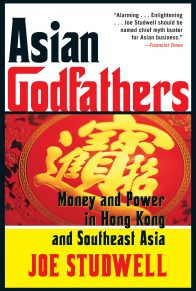“[An] entertaining and greatly enlightening book . . . Bernstein is a fine writer and knows how to tell a great story well. . . . He never loses sight of his overall goal: to show how trade shaped the world in the past and will shape the world in the future. . . . A Splendid Exchange is a splendid book.” —John Steele Gordon, The New York Times
“Sparkling . . . One freewheeling historical passage follows another. . . . A Splendid Exchange is saved from any possible tedium by its feast of contrarian conclusions, its broad historical sweep, and, especially, its vivid characters. . . . Fascinating.” —BusinessWeek
“Superb . . . [A] significant contribution . . . The chronological range of Bernstein’s book is staggering. . . . A Splendid Exchange is a work of which Adam Smith and Max Weber would have approved. And it is all the more interesting because it is written by someone who is deeply knowledgeable about and active in the financial world yet finds the time to write graceful and insightful history with a delicate display of scholarship that conceals a vast erudition. What really marks Bernstein out is his talent in understanding, and then explaining, international commercial linkages.” —Paul Kennedy, Foreign Affairs
“Vivid . . . Colourful . . . Highly entertaining . . . A fascinating journey through the evolution of trade . . . Bernstein’s enthusiasm for his subject and impressive organisation of a wealth of material enable him to plot with pace and verve a largely chronological account of man’s trading history.” —Hugh Carnegy, The Financial Times
“A Splendid Exchange is filled with adroit observations on the evolution of trade from the ancient world to today. Bernstein draws upon a vast historical context to show how trade’s development is part of society’s natural progression toward prosperity, and he makes a convincing case that trade and trade policy have been the catalyst for the development of ambitious nations. He correctly asserts that we must be aware of how it has shaped the past because it will continue to have a pivotal role—for better and for worse—as we move into the future. Politicians take heed!” —Arthur Laffer, founder and chairman, Laffer Associates
“A Splendid Exchange is really much more than a history of trade. In William Bernstein’s deft treatment, it becomes pretty much a history of the world. The age-old urge to profit by buying low and selling high led to empires, wars, trade restrictions, and—more recently—violent protests against economic and financial globalization. Bernstein’s vast knowledge of trade’s past is great preparation for dealing effectively with today’s controversies about its future.” —Richard Sylla, Henry Kaufman Professor of the History of Financial Institutions and Markets, and Professor of Economics, NYU’s Stern School of Business
“In A Splendid Exchange, Bill Bernstein has further burnished his credentials as both an economic historian and a felicitous writer. He has given us an eye-opening, brilliantly researched, anecdote-laced, and exciting-to-read history of global trade. Readers of this compelling saga will be intellectually rewarded, enticed, and amused—and more sensitively attuned to the challenges of today’s version of the globalization that has driven so much of civilization’s economic growth and social progress.” —John C. Bogle, founder, the Vanguard Group
“Bernstein illuminates modern debates in a sweeping history of international trade, weaving skillfully between rollicking adventures and scholarship. His history of trade from the ancients to the present is a story of our irrepressible urge to exchange goods, which in turn fostered exchanges of art, science, and ideas. The story of trade is the story of humankind; all in all, a happy story indeed.” —Pietra Rivoli, author of The Travels of a T-Shirt in the Global Economy
“Think contentious debate over globalization is something new? Think again. With a staggering understanding of the role of trade in history and a storyteller’s touch for illuminating its human impact, William Bernstein takes us back to days of ‘ghost ships’ and perilous land journeys to explain how age-old debates over trade’s winners and losers shape today’s bitter divisions over free trade and protectionism. Along the way, Bernstein uncovers the roots of Sino-American trade tensions and explains how century-old backlashes over free trade continue to reverberate as the world’s nations become ever more connected to each other through commerce. Bernstein has given us a master’s insights into the past to help us understand an issue of deep divisions in the present age.” —Sara Bongiorni, author of A Year without “Made in China”: One Family’s True Life Adventure in the Global Economy
“Bernstein’s powerful book demonstrates that trade is a fascinating, pervasive, and often dominant factor in human history. But Bernstein also provides us with memorable stories about nations around the world and through the centuries. Economics, sociology, military strategy, and even health care are here, as well as a striking group of vivid personalities. The book is not just essential reading; it is fun all the way.” —Peter L. Bernstein, author of Against the Gods and Wedding of the Waters
“Bill Bernstein is a funny, lively storyteller who engages us with rich stories that tell how international trade and economic history have evolved together from the Stone Age on. This book is a wonderful way to learn history, geography and economics. As I read it, I felt like a kid reading about Uncle Scrooge’s adventures among old civilizations in strange lands, all the while harvesting ideas for my classes.” —Ed Tower, Professor of Economics, Duke University
“Financial theorist and historian Bernstein is equally at home plumbing the romantic dawn of trade or untwisting the mind-wracking complexity of modern international commerce. . . . An excellent exposition of key factors in a perennial economic conundrum.” —Kirkus Reviews (starred review)













